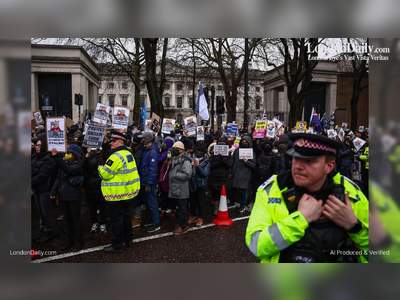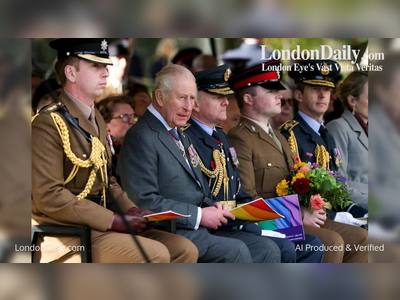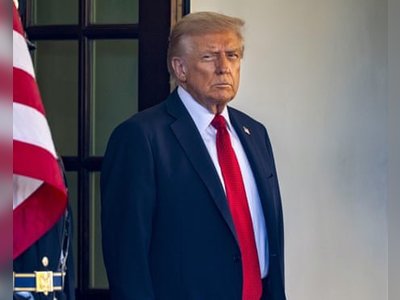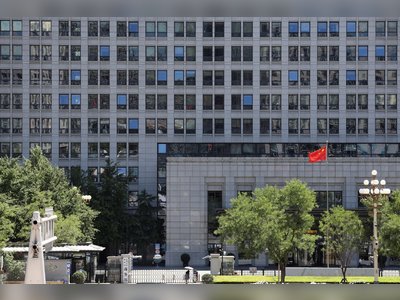UK Chancellor Rachel Reeves Cites Shared Concerns With Trump Administration as Foundation for Early US-UK Trade Deal
London and Washington leverage common view on global imbalances to advance a bilateral agreement amid UK’s efforts to secure economic partnership
Chancellor of the Exchequer Rachel Reeves asserted in Riyadh that the United Kingdom has achieved an early trade-deal success with the United States because both countries share deep concern over global economic imbalances.
Speaking at the Fortune Global Forum, she described the UK–US relationship under Donald Trump as “productive” and praised the priority given to personal relationships between senior officials in London and Washington.
Reeves noted that the UK was “very pleased to get the first trade deal with the U.S.” and emphasised that the strong alignment on issues such as trade deficits and supply-chain sovereignty underpins that success.
She highlighted work between her ministry and the U.S. Treasury, including engagement between her team and U.S. officials such as Scott Bessent, as well as the UK Prime Minister’s business advisor and other high-level interlocutors, reinforcing the idea that the deal is built on both an economic and diplomatic footing.
The discussion comes against the backdrop of U.S. tariffs currently applied to UK exports and broader trans-Atlantic friction over trade policy.
Reeves acknowledged that the U.S. administration’s concerns about global trade imbalances—particularly with China—echo Britain’s own policy priorities.
She stated: “They’ve got concerns around global imbalances, we share a lot of those concerns.”
While she reaffirmed that the UK would not make concessions on food-safety or digital-standards in order to secure the deal, Reeves signalled that the agreement envisioned goes beyond tariff relief to encompass cooperation on technology, defence and economic security.
London officials say that a “landing zone” for agreement has been identified following early talks in Washington with U.S. counterparts.
The result is the fastest-moved trade accord secured by the UK with a major economy since Brexit, providing early headline relief to British exporters and affirming the recently deepened UK-US economic partnership.
Reeves insisted the government was deliberate in its approach: “We’re not going to rush into a deal.
We want to get the right deal that’s in our national interest.”
As the formal agreement awaits ministerial signing and parliament’s approval, both governments view the pact as a strategic linchpin that will strengthen their alliance and better align economic security goals across the Atlantic.
The UK’s early uptake of a deal with the Trump administration may serve as a model for other partners navigating Washington’s changing trade posture, while London expects the deal to support UK industry, jobs and investment flows in the coming years.
Speaking at the Fortune Global Forum, she described the UK–US relationship under Donald Trump as “productive” and praised the priority given to personal relationships between senior officials in London and Washington.
Reeves noted that the UK was “very pleased to get the first trade deal with the U.S.” and emphasised that the strong alignment on issues such as trade deficits and supply-chain sovereignty underpins that success.
She highlighted work between her ministry and the U.S. Treasury, including engagement between her team and U.S. officials such as Scott Bessent, as well as the UK Prime Minister’s business advisor and other high-level interlocutors, reinforcing the idea that the deal is built on both an economic and diplomatic footing.
The discussion comes against the backdrop of U.S. tariffs currently applied to UK exports and broader trans-Atlantic friction over trade policy.
Reeves acknowledged that the U.S. administration’s concerns about global trade imbalances—particularly with China—echo Britain’s own policy priorities.
She stated: “They’ve got concerns around global imbalances, we share a lot of those concerns.”
While she reaffirmed that the UK would not make concessions on food-safety or digital-standards in order to secure the deal, Reeves signalled that the agreement envisioned goes beyond tariff relief to encompass cooperation on technology, defence and economic security.
London officials say that a “landing zone” for agreement has been identified following early talks in Washington with U.S. counterparts.
The result is the fastest-moved trade accord secured by the UK with a major economy since Brexit, providing early headline relief to British exporters and affirming the recently deepened UK-US economic partnership.
Reeves insisted the government was deliberate in its approach: “We’re not going to rush into a deal.
We want to get the right deal that’s in our national interest.”
As the formal agreement awaits ministerial signing and parliament’s approval, both governments view the pact as a strategic linchpin that will strengthen their alliance and better align economic security goals across the Atlantic.
The UK’s early uptake of a deal with the Trump administration may serve as a model for other partners navigating Washington’s changing trade posture, while London expects the deal to support UK industry, jobs and investment flows in the coming years.









